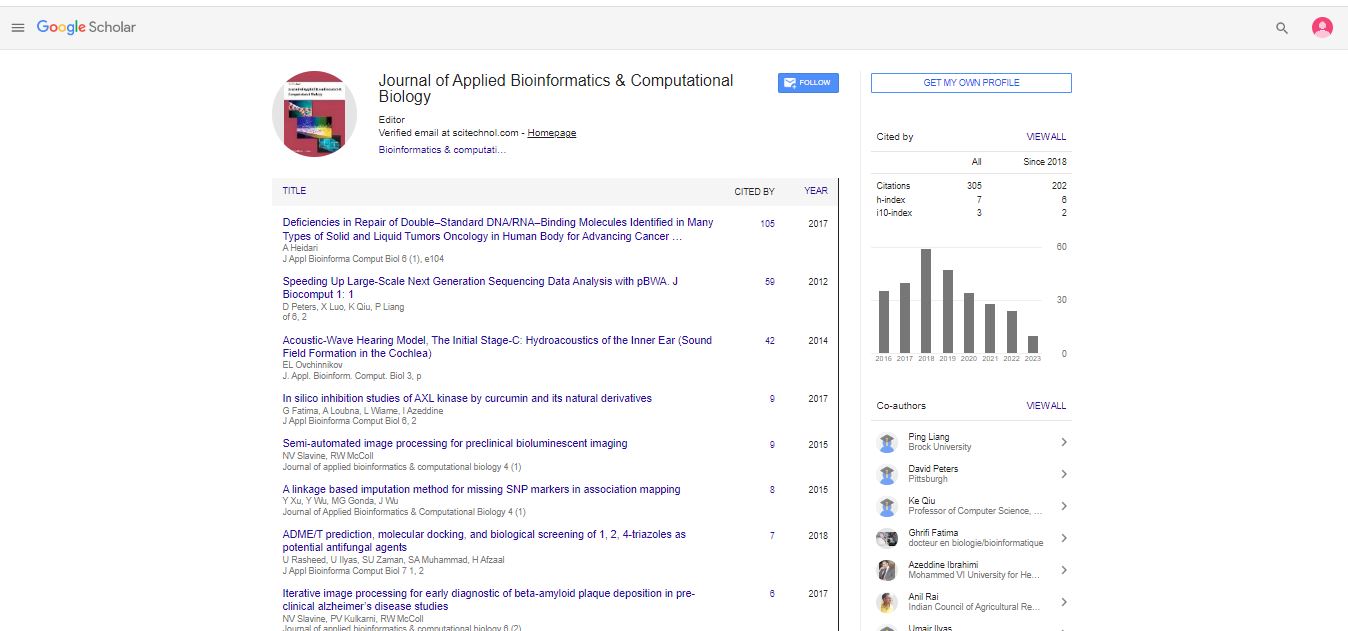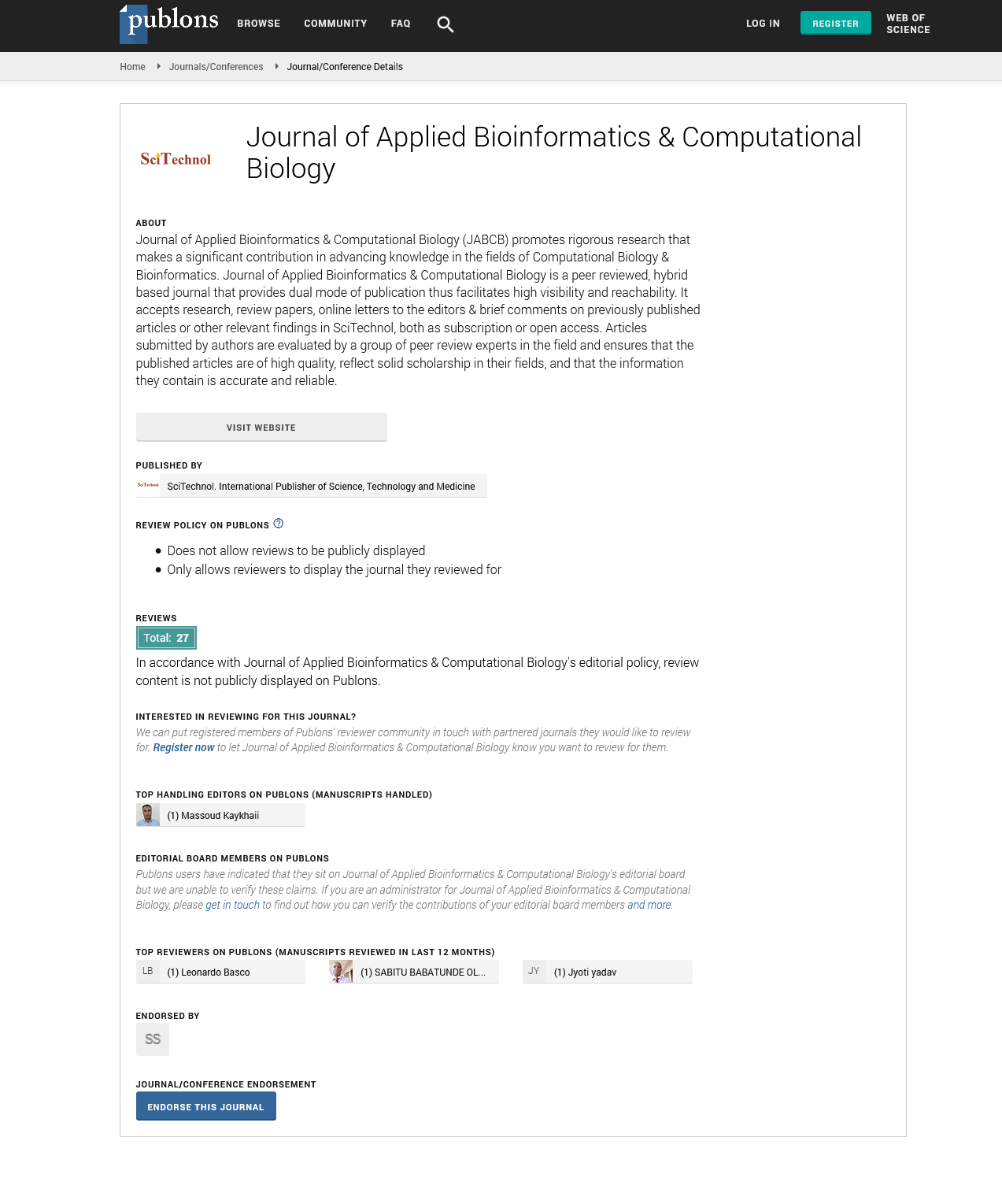T cell activation: The Achilles heel of ex vivo expanded T cells
Bipulendu Jena
The University of Texas MD Anderson Cancer Center, USA
: J Appl Bioinforma Comput Biol
Abstract
Statement of the Problem: Adoptively transferred gene-modified T cells can deliver complete remission in patients with refractory B-cell tumor such as B-ALL and DLBCL. The foundation for successful cell therapy rests in the ability to numerically propagate CAR-T cells in GMP conditions. Nevertheless, studies have shown that both cell-intrinsic, as well as extrinsic factors, can influence the performance of CAR gene-modified T cells in the clinic. Notably, the efficacy of CAR-T in its current format has shown modest efficacy in solid tumors tested in clinical trials. Conceivably, in the complex tumor microenvironment (TME) adoptively transferred T cells persist for a short period and are less likely to remain functional. We studied activation of T cells in culture and investigated the changes cells undergo during in vitro expansion process to check if the mode of activation contributes to subsequent cell exhaustion in vivo. Methodology: We studied activation-induced changes in blood mononuclear derived T cells subjected to high and low-affinity antibody-mediated stimulation in vitro. We documented that the cell surface associated immunophenotype markers, microscopic changes in cell organelles and gene expression profile in response to different mode and strength of T cell activation. Conclusion & Significance: Our result revealed that subtle change in T cell activation method either via altered antibody ligand or use of T cell signaling domain (for CAR gene-modified T cells) can have a profound effect on T cell differentiation, generation of memory phenotype and the metabolic propensity of ex vivo expanded T cells. This early observation underlines the need to find a "sweet spot" in T cell activation in terms of strength and mode of activation, that may help to expand T cells ex vivo without affecting its ability to survive and function long term in a suppressive tumor microenvironment.
Biography
E-mail: bjena@mdanderson.org
 Spanish
Spanish  Chinese
Chinese  Russian
Russian  German
German  French
French  Japanese
Japanese  Portuguese
Portuguese  Hindi
Hindi 
